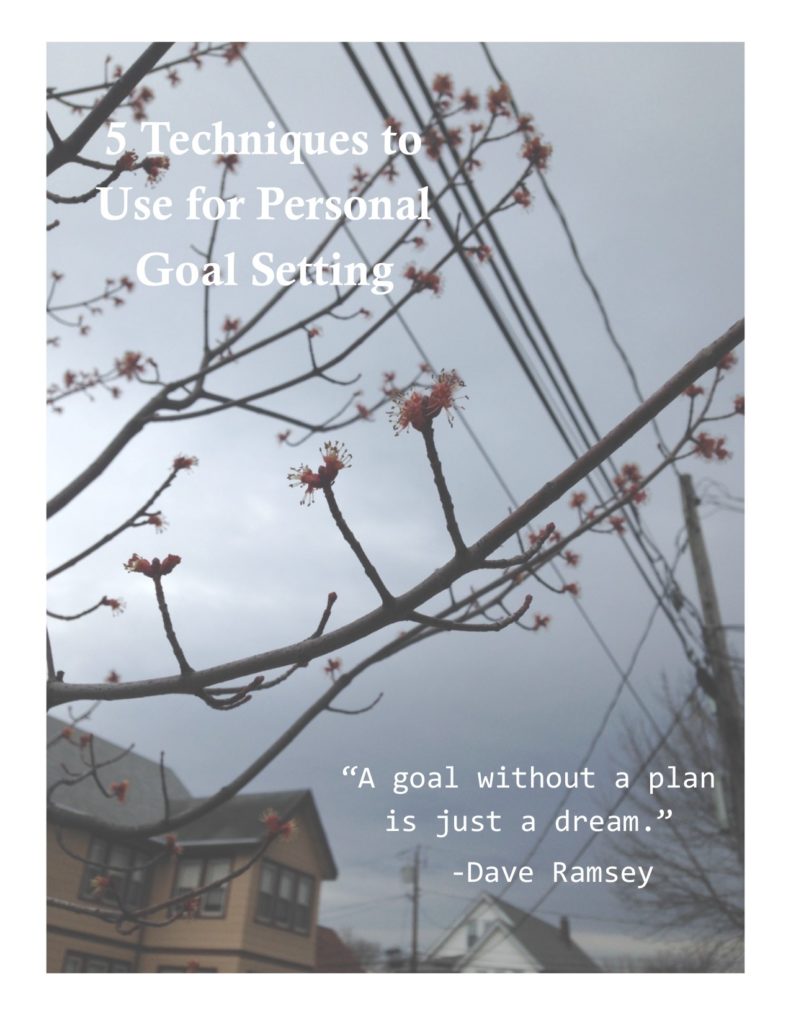
5 Techniques to Use for Personal Goal Setting Success
The year is almost halfway over, so you may either be doing great at your New Years’ resolutions…or you’ve completely forgot about them. So, maybe you haven’t been that great at keeping them, but if you still have a big personal change or improvement in mind, no one says you can’t begin again! Take these necessary steps and tips in mind this time around and get to it. The journey sometimes seems long, but with each little, important accomplishment you will be able to build up confidence in your abilities and feel better motivated to move onto the next closest step to achieving your goal.
Start with a specific “Big Picture” goal.
Ask yourself a few questions:
What do you ultimately want for your career? Do you want to settle down somewhere? Where?
What kind of social life do you want to end up with? Spouse? Children? How many?
In 10 years, where do you want to be and what do you want to be doing?
In 20 years, where do you want to be and what do you want to be doing?
These are great starters; however, they will not be enough. Based on your personality type, this may the very thing you think about all of the time. However, you may be more like the kind of person who is concerned about the here and now. Wherever your brain tends to wander, start here so that you can slide easily into the next few techniques.
Research and write down the smaller, realistic steps.
Let’s say that you made a goal to be out of debt in 10 years. Yes, you may want to be out of debt now, but unless your debt is very small, that may not be realistic. Go and talk to a financial advisor. Call a friend who has been through it and pick their brain a little. Understand the process and then write down each step that you need to take. If these steps are not time-sensitive, then prioritize them according to how you feel works best for you. Keep in mind, however, that choosing to tackle the hardest or longest step may cause you to give up too quickly. More people find success when they start small and then move their way up. Each checked off step builds confidence and momentum that you need to move on to the next phase.
Create a timeline.
Use the information from above to decide when you feel you can realistically attain these goals. Let’s say that you decided one of your goals is that in 5 years you want to have run a marathon. This is a common goals to have, but you may not be able to work toward them without taking the smaller steps and attaching them to deadlines or timeframes that are closer. For example, you may start with a personal trainer for a few months, or take a running class from a local college. Or, if you are not such a beginner, you will just start right out with goals to run 10 miles, then 15 and so on. This timeline will also help you to get a more concise, detailed view of your future.
Keep a daily journal or notes about how your goal success is going.
Again, this is a confidence builder. Confidence is necessary for your success. Additionally, this method will help you to evaluate your performance. Perhaps you will notice a pattern that your goal to eat healthier is not something you are thinking about on the weekends. Or, you may feel like some step you thought was necessary is actually a time-waster. These processes may seem small, but they are the best way to maintain your trajectory.
Review, revise, and repeat.
Take what you wrote down, and any other observations, feedback, or experiences you’ve had and review them compared to your outlined goals. Have you been able to stay on task? What could you do better? What isn’t working? This constant comparing of your actions to your desired goals will keep you on task, provide insight, and help you to let go of the behaviors that are hindering your progression.
At the end of it all, keep in mind that goals are a little more than just hobbies or time fillers- they take work and sometimes in enormous amounts. If you or a loved one is on the path to substance abuse recovery, let us help you to reach that goal of freedom from the pain of addiction. We offer personal, custom residential treatment plans, professional detoxification programs, and flexible outpatient treatment programs. We are there for you through every step of recovery because we care about your success. If you’re ready to get the help that we are ready to give, email or call us to start with your initial assessment. 360-397-8246 ext. 7580 or admission_office@lifelineconnections.org
[Featured Image by Bryan Wintersteen via Freeimages.com]
[Image by Maddison Meijome]
